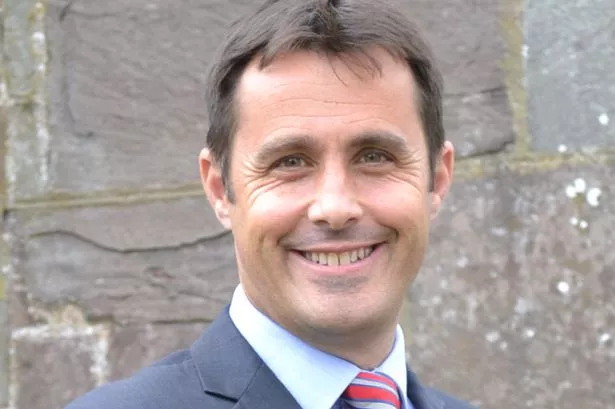Fee charging schools in Wales have been given a glowing report from the chief inspector of education. Owen Evans, head of Estyn, highlighted strong exam results, effective teaching and “exemplary behaviour” of pupils.
Children at Wales’ independent schools achieve their potential, including those with additional learning needs, the Chief Inspector says in his interim annual report. The report comes as independent schools face being charged VAT by the new Labour government, which some fear will be passed on to parents in increased fees. You can read what one independent headteacher said about that here.
Me Evans lists what independent schools in Wales get right in his interim annual report. In the same document the man in charge of education standards details what’s hampering pupils’ progress in maintained secondaries and you can read more about that here.
Read more:All the big things primary schools in Wales are getting right
Read next: School where pupils hurled chairs and called teachers c*** gave kids treats while staff walked out in protest
Issues that have been highlighted in maintained schools, such as reading and teaching standards, behaviour and wellbeing, are all being dealt with well by their fee-charging counterparts, the Chief Inspector’s interim report shows. At the same time Mr Evans notes the reduced budgets and problems recruiting teachers that the state system faces. You can get more story updates straight to your inbox by subscribing to our newsletters here.
What’s going well in Wales’ independent schools, according to Estyn
- Teachers apply their expert knowledge of public examination specifications highly effectively. As a result, overall, pupil attainment in public examinations is strong.
- Pupils’ communication skills are highly developed and are a particular strength.
- Pupils’ enjoyment and standard of reading are high.
- Pupils demonstrate strong writing abilities for a variety of purposes, particularly older pupils who write concise and cogent arguments in response to examination questions.
- Most pupils make strong progress in developing their mathematical skills with older pupils developing advanced mathematical skills during their time at school.
- Schools offer an extensive and frequently highly individualised curriculum, well-tailored to the needs and interests of pupils.
- Staff know their pupils’ needs, abilities and interests extremely well and build strong professional relationships with their classes.
- Teaching is well sequenced and supported by carefully selected and designed resources.
- Teachers provide effective verbal feedback, which helps move learning forward.
And what needs to improve:
- In all schools visited, pupils are confident users of digital technologies, although progress in developing their discrete digital skills is variable. This is because curriculum planning for the progressive development of these skills is at an early stage of development.
- Where pupil progress is less strong, this is more often due to teachers excessively scaffolding or leading activities and not providing pupils with sufficient opportunities to work independently.
On well-being, care support and guidance, Mr Evans said fee charging schools “have worked highly effectively to ensure good levels of care, support and guidance to continue to successfully support pupils’ well-being.”
This is what Estyn says is going well on well-being, care support and guidance
- Each school inspected place an extremely high priority on the well-being of their pupils.
- A particular strength is the comprehensive advice and support pupils received when considering their future destinations and careers.
- Relationships between staff and pupils are strong, constructive and supportive.
Pupils have a strong sense of belonging, take pride in their school and demonstrate respect for each other, members of staff and visitors to the school.
- Nearly all pupils’ behaviour and most pupils’ attitudes to learning are exemplary.
- Most pupils display high levels of concentration and engage enthusiastically throughout their lessons.
- All of the schools inspected actively promote pupils’ spiritual, moral, social and cultural development well.
- Each of the schools inspected this year supports pupils with additional learning needs well.
- Pupils requiring additional support are swiftly identified and staff use helpful strategies during lessons to remove barriers to learning. As a result, pupils with additional learning needs achieve in line with their expectations.
And What needs to improve:
- In a few cases, school policies required minor amendments to meet the requirements of Welsh Government legislation.
- Overview of recommendations from inspections
- In the 2023-2024 academic year, Estyn inspected five independent mainstream schools.
The report was based on inspections of five independent schools in Wales in the 2023-24 academic year. Four of the five were given a recommendation to refine quality assurance or self-evaluation processes, particularly in terms of the quality of teaching, Estyn added.
Two providers were given a recommendation "to build on existing practice to improve consistency across the school" and two were given a recommendation about leadership.
Other recommendations provided to independent mainstream settings included improving attendance, ensuring that teachers’ expectations are appropriately high, making best use of assessment data to inform/enhance pupil progress, and sharpening monitoring and improvement work to focus on pupil outcomes.

